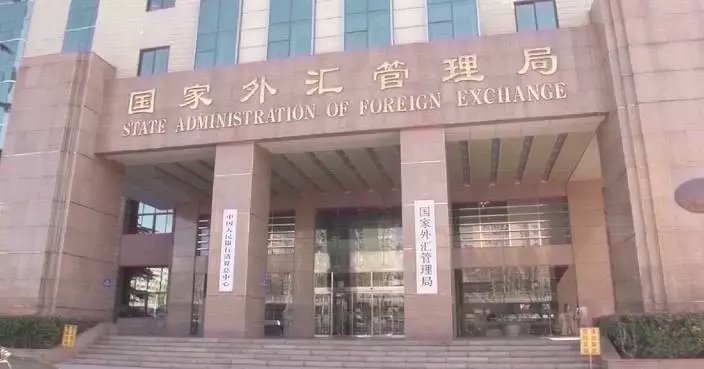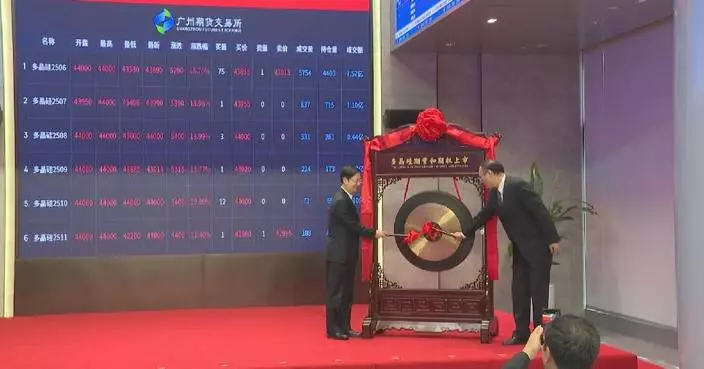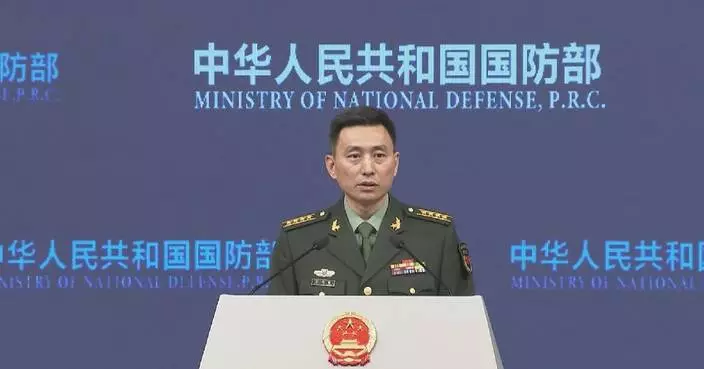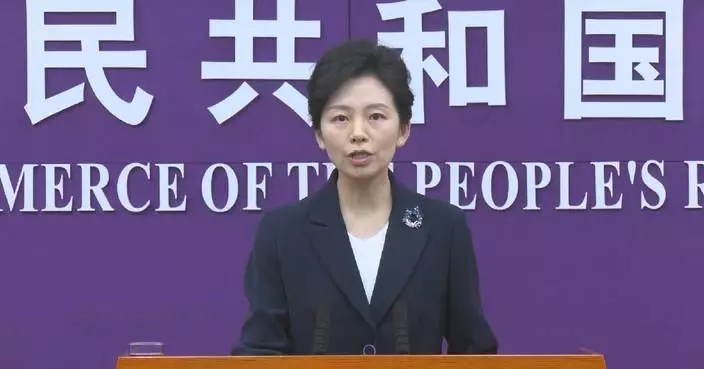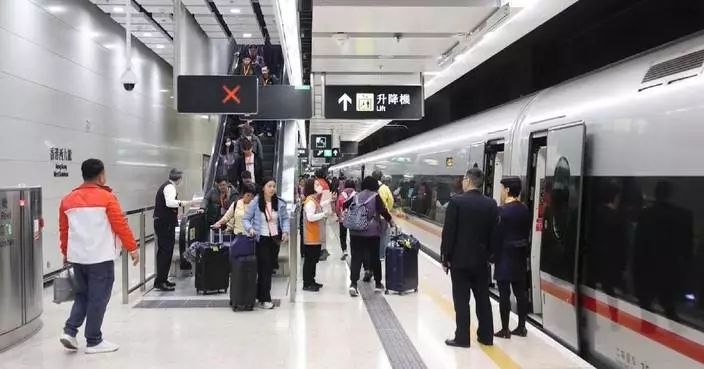Italian President Sergio Mattarella on Saturday highlighted the importance of cultural exchanges among different civilizations as a means to promote mutual understanding between countries, speaking at an event at the prestigious Peking University in Beijing.
Mattarella is currently paying a state visit to China from November 7 to 12 at the invitation of Chinese President Xi Jinping.
On Saturday evening, the Italian president attended an event at Peking University, where he delivered a speech and engaged in a dialogue with faculty and students from both China and Italy.
In his speech, Mattarella reflected on the long history of China-Italy relations. He said Chinese civilization and Italian civilization have been closely interconnected through cultural exchanges since ancient times, making significant contributions to the development of human civilization.
"The ancient Silk Road is one of the earliest practices of globalization. Along this groundbreaking route, intrepid merchants crossed continents to exchange goods, ideas and knowledge. It is also a reminder that mutual respect and open dialogue are fundamental elements for countries to achieve peace and prosperity," said the Italian president.
The event attracted many Italian students studying in China, who shared how their experience have deepened their understanding of Chinese society.
"I am loving it. I think it's a very beautiful country. People are very, very kind, also towards foreigners. I think the education here is at a very high level," said Azzurra Pisciotti, an international student at Renmin University of China.
"I think in a way we are very similar, Italy and China. There is a brotherhood between us in a way that both our cultures are structured in (similar) ways and (share) a long history, a long appreciation of values like family, culture, friendship and loyalty," said Alessandro Cutolo, an international student studying at Peking University.
Promoting cultural exchanges is one of the top agendas of Mattarella's current state visit to China. The two sides have signed multiple bilateral cooperation agreements in areas including culture, science and technology, education, and world heritage site partnerships.
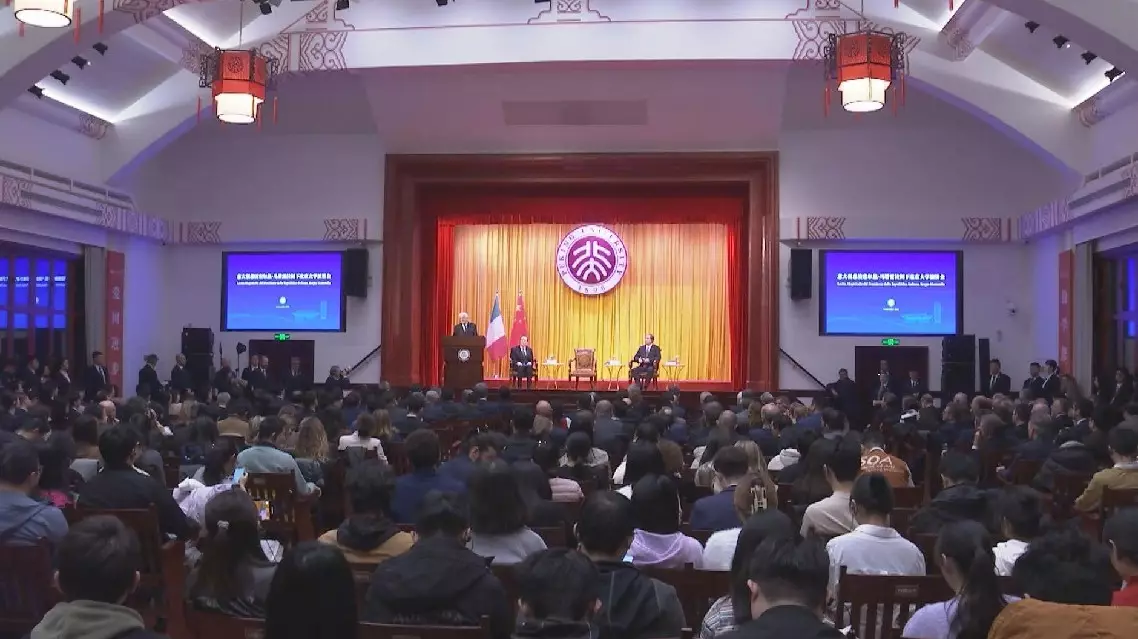
Italian president highlights exchanges among civilizations
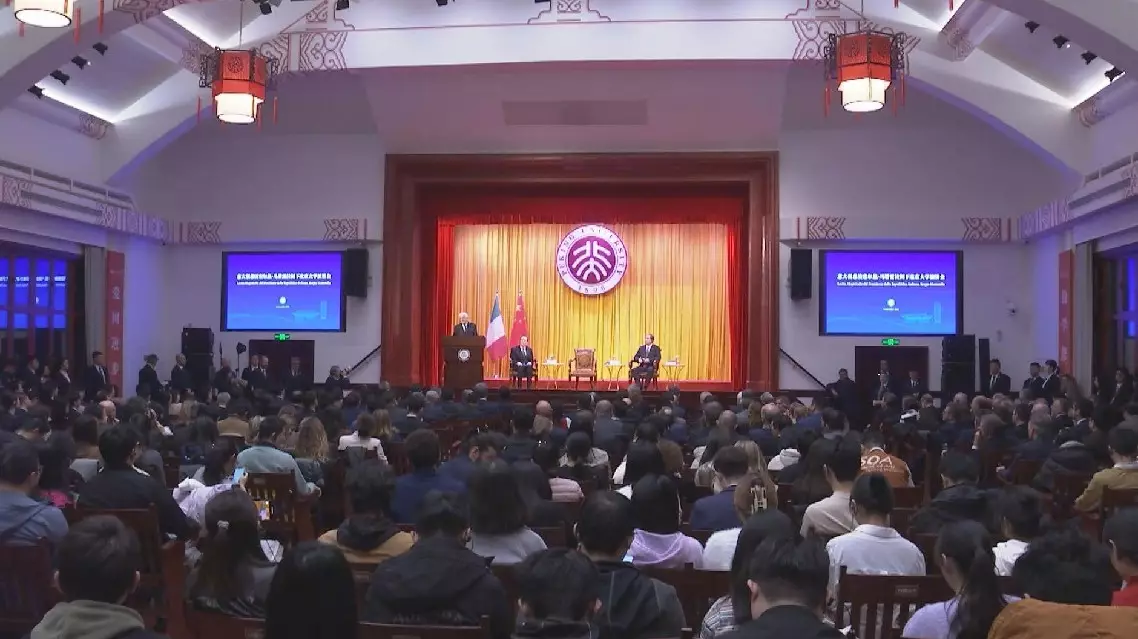
Italian president highlights exchanges among civilizations
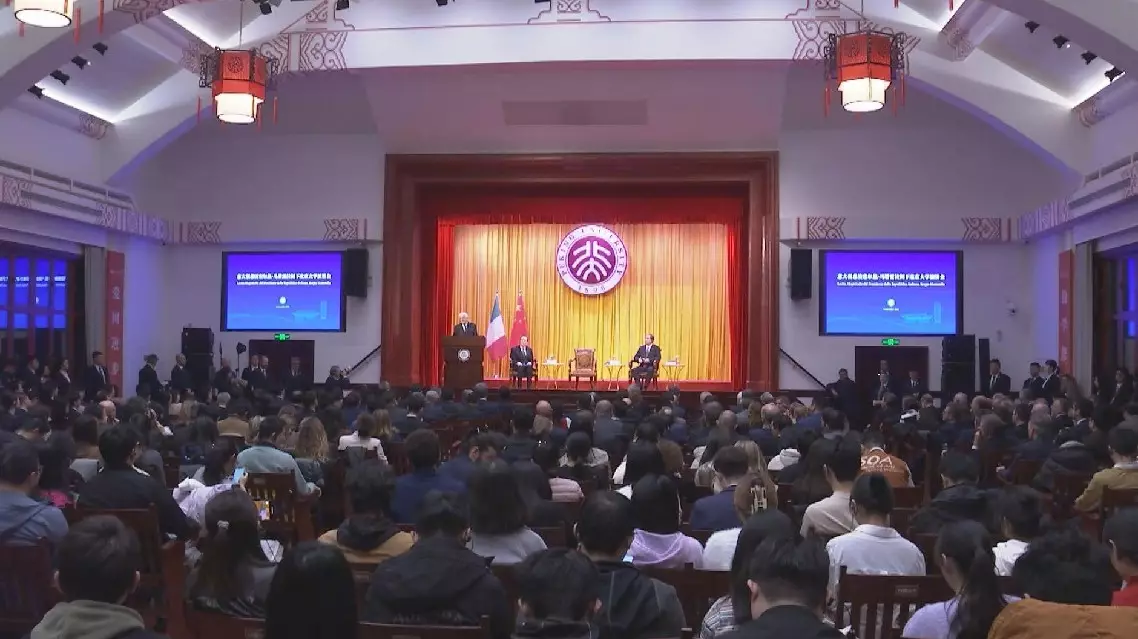
Italian president highlights exchanges among civilizations
A new train route from Harbin to Mohe in northeast China's Heilongjiang Province is offering tourists a unique cultural experience as part of China's booming winter tourism services.
Harbin and Mohe are two prominent winter tourist destinations in China. Harbin is home to the world's largest snow theme park, Ice and Snow World, which features intricate ice and snow sculptures and landscapes spanning one million square meters. Mohe, China's northernmost city, offers unique experiences, including encounters with forest reindeer and sightings of the breathtaking Northern Lights.
This year, the train journey between Harbin and Mohe offers a unique and memorable experience for tourists, providing a thrilling lag to their winter adventure. The train departs Harbin every day at 18:20, winding its way through the snow-covered landscapes of northeast China. The 18-hour ride is a celebration of the region's rich culture, immersing passengers in the vibrant traditions and customs of the area.
Travelers can enjoy the live performances of Yangge, a song-and-dance duet popular in the Northeast of China, and are even invited to join in to fully enjoy the lively and warm atmosphere. The ornaments and cushions on the train with distinctive local style ooze the generous, warm-hearted, and humorous spirit of the region.
Tourists from across China are flocking to experience the unique cultural journey offered by the new train route. Liu Huixing, a tourist from Changsha, Hunan Province, expressed her enthusiasm for the trip.
"We are from Hunan's Changsha, and we will stay in Heilongjiang for seven days. The shows tonight were amazing, very joyful, we also participated, and loved it so much," she said.
"The activities offer tourists from southern China a special experience. In this way, they can enjoy northeast China's culture before they arrive at Mohe City. And our train is very popular," said Shi Lei, the conductor of the train.
The unique offerings of the train complements local attractions and have made the Harbin-to-Mohe route a key driver of Heilongjiang's winter tourism boom.
Over 87 million tourist trips were made to Harbin between November 2023 and February 2024, generating revenue of 125 billion yuan (about 17 billion U.S. dollars), the highest in its history up to last year.
China's central government has also set goals that by 2027, the total value of winter tourism should reach 1.2 trillion yuan (about 164 billion U.S. dollars), and by 2030, increase to 1.5 trillion yuan (about 206 billion U.S. dollars).
The Asian Winter Games to be held in Harbin in February 2025 will make winter tourism even more popular in China.
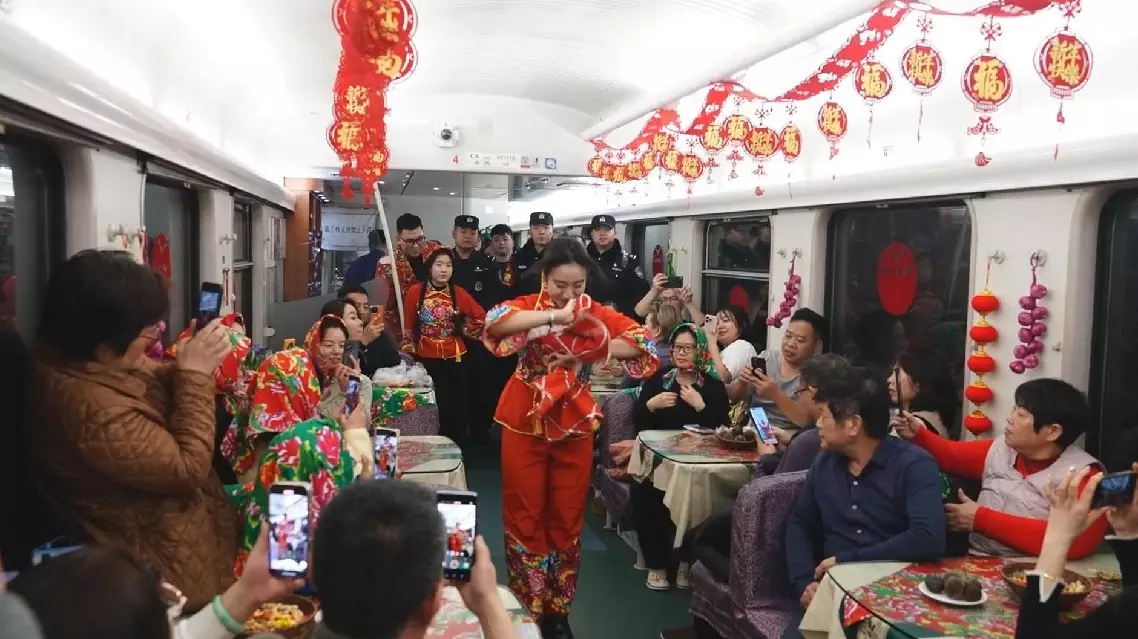
China's northeast region sees surge in winter tourism with new train route






